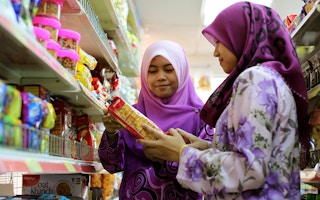Investments in agriculture and food research are declining at a time when these sectors are facing significant risks arising from climate change, biodiversity loss and the spread of pests and diseases that affect plants, animals and humans, an international conference heard.
“As a single and sobering example of the shift in investment in agricultural research, the spending of CGIAR, the world’s largest global agricultural innovation network, has declined in inflation-adjusted terms by almost 40 per cent since 2014,” said Philip Pardey, co-director of the GEMS agro-informatics initiative and director of global research strategy at the University of Minnesota’s College of Food, Agricultural and Natural Resource Sciences.
Speaking at The Crawford Fund annual conference held in Canberra, Australia on 15 and 16 August, Pardey said that all available evidence supports a doubling of agri-food R&D spending. “For every dollar invested in agricultural R&D, there is a return of US$10 in social benefit, and this level of return has been consistent over many years,” he said. “Yet, agri-food R&D spending is a declining share of total R&D spending.”
A concerning trend, he pointed out, is that just 10 countries account for almost two-thirds of the total food and agriculture R&D spending worldwide.
“
We’re losing so many excellent people because they don’t have the job security. They’re spending up to a third of their working year applying for grants and justifying their existence.
Kylie Walker, chief executive officer, Australian Academy of Technology and Engineering
Pardey noted that currently, on average, only three per cent of the total R&D spent in high-income countries is directed towards agriculture, whereas about a fifth of the total R&D spending in low-income countries is focused on food. The geography of food and agriculture R&D, just like the geography of agricultural production, has shifted heavily over the Asia Pacific region.
“The Asia Pacific region [including developed and developing countries], now accounts for almost half the world’s spending on agri-food R&D,” Pardey said. “China is now outspending the US in both public and private agri-food R&D, accounting for around 23 per cent of global agri-food R&D spending.
“In terms of sharing knowledge, the private sector now outspends the public sector in agri-food R&D worldwide, at a time when almost 90 per cent of the research in the low-income countries still takes place within the public sector. This has really big implications for how public policy is formulated and how public research is done in terms of its potential.”
For the research to translate into evidence-based policy decisions that would benefit all stakeholders, Regina Bi Nukundj, senior food security policy officer in Papua New Guinea’s Department of Agriculture and Livestock, suggested including policy officers during the design phase of a research project.
“We have a lot of funding poured into doing the research projects. The collaboration, objectives and outcome of the research is very good, but it is limited to the research panels or the capacity building of individual researchers in the country,” Nukundj said.
Factors that are important for the success of collaborative projects in the Asia Pacific region are, first, the quality of collaboration with partners and, secondly, the ownership of the beneficiary, said Ravi Khetarpal, executive secretary of the Asia Pacific Association of Agricultural Research Institutions and chair of The Global Forum on Agricultural Research and Innovation.
Speakers stressed the need for more, better and sustained investment in agricultural research to realise its full potential. Kylie Walker, chief executive officer at the Australian Academy of Technology and Engineering, said: “There is no reason why we cannot commit to 10- or 20-year research programmes and give that stability to our system.
“We’re losing so many excellent people because they don’t have the job security. They’re spending up to a third of their working year applying for grants and justifying their existence.”
Agricultural research brings a whole range of social benefits — including improving equity for women and ethnic minorities, developing more diverse and resilient production systems that benefit the natural environment, improving nutrition. This should motivate governments to support it, said Jenny Gordon, former chief economist at Australia’s Department of Foreign Affairs and Trade.
Emphasising the benefits of research for development, Jean Balié, CGIAR regional director for South-East Asia and the Pacific and director-general of the International Rice Research Institute, said that while the Green Revolution [of the 1950s and 60s] was characterised by producing cheap and abundant food, the goal now should shift to delivering nutritious, diversified food from sustainable ecosystems.
Underscoring the critical importance of weaving traditional knowledge of Pacific Island countries with modern science and technology, Audrey Aumua, member of the policy advisory council of the Australian Centre for International Agricultural Research and chief of the Fred Hollows Foundation, New Zealand, in her keynote address asked, “Why is our aid lagging and our agricultural models outdated?”
Calling for a broader regional research agenda that not only provides support, but builds capacity for agricultural research, she said: “The uniqueness of our agricultural challenges can and should lead to unique scientific breakthroughs, but these breakthroughs will not happen if our small island nations do not collaborate and receive support from our large regional partners.”
This article was originally published on SciDev.Net. Read the original article.

















